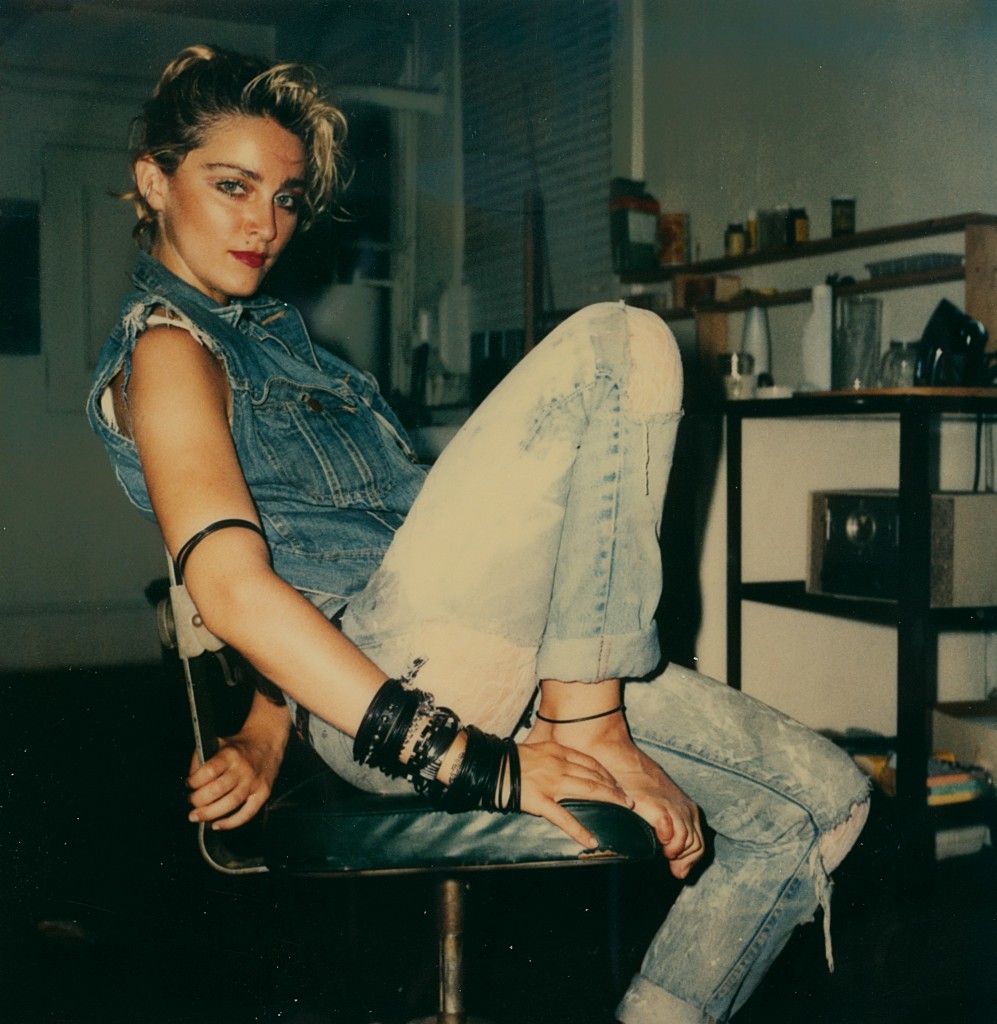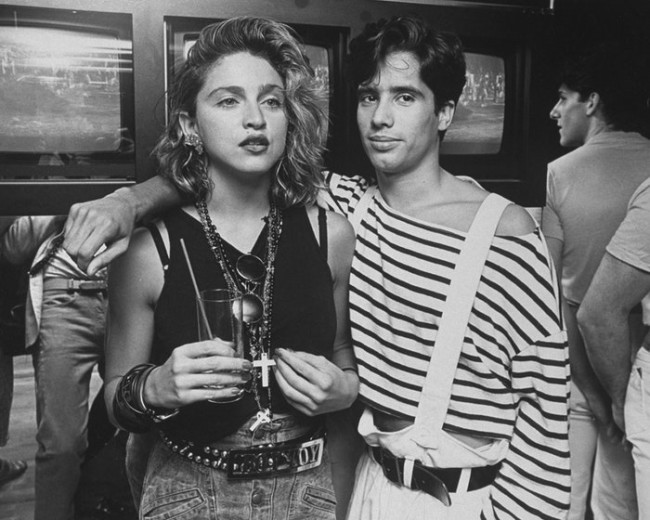In one of the most improbable crossovers in recent screenplay memory, Blonde Ambition is “Once” meets “The Social Network.” But is it as good as either of those movies?
Genre: Biopic
Premise: Set in New York in the 80s, Blonde Ambition tells the story of how Madonna hustled her way to stardom.
About: Today we have the NUMBER ONE script of the 2016 Black List. The project is still in an unknown stage, probably because navigating a biopic about a living person is always tricky. Madonna is aware of the project, and had this to say about it: “Nobody knows what I know and what I have seen. Only I can tell my story. Anyone else who tries is a charlatan and a fool looking for instant gratification without doing the work. This is a disease in our society.” It’s not clear whether she’s actually read the script or just been told about it. So Madonna, if you’re out there? I’m doing the work for you. The writer, Elyse Hollander, worked as an intern on The Rotten Tomatoes Show but is still, even now, a newbie in the screenwriting world. I believe she’s working on an assignment for Universal, which is the studio that bought her script.
Writer: Elyse Hollander
Details: 118 pages
I have finally placed myself in the headspace to read the Madonna biopic. It only took me, what, two years? But I’m finally ready to commit. You may be asking, “Why, Carson? Oh why has it been so hard for you to read this script? It’s the number 1 script on the Black List!” That’s true. However, I’ve never been a Madonna fan. I may go so far as to say she annoys the hell out of me.
However, there HAS to be something to this script if it beat out every other script in 2016. And I can’t deny that Madonna’s an interesting person. I just hope there’s a good story to be told here and it isn’t yet another: “Famous Figure + screenplay = Black List,” which is a formula we’ve seen used and abused too many times by this point. I’m going to leave my biases behind and read this script Like a Reader Virgin. Let us begin…
It’s the 80s, New York. A fearless and brazen 24 year old Madonna is a year into trying to become a pop star with her band, The Emmys. Her boyfriend, Dan, is the guitarist and contains 1/1000th of Madonna’s drive. The other members are bassist Ed, Dan’s brother, and Stephen, Madonna’s best friend from back home.
Here’s the problem. The Emmys, like the broadcast, kind of suck. They’re cliche. They’re sloppy. The only reason they’re on anyone’s radar in the first place is because Madonna is a hustler. If there’s one thing you learn from this script, it’s that Madonna could fucking hustle. She spends every waking second breaking into rooms, charging into clubs, forcing her way into meetings, to tell important people to listen to her band.
After everyone rejects them, Madonna finds the hottest DJ in New York, a Latino guy named Jellybean, and forces him to listen to her music. He doesn’t like it, but agrees that with a remix, it could be good. Perfect. That’s exactly what Madonna wanted. “You knock this out of the park and you can produce my next album,” she tells him. Jellybean laughs at her bravado. She’s saying she’ll help him? He’s the star here! Regardless, the two start hanging out together, remixing her album, and falling in love.
The first couple of songs become hits and out of nowhere, Madonna is the hottest thing in music. All the record producers who were ignoring her before are now begging to work with her on her next album. Jellybean is thrilled because, you know, he’s going to produce that album.
Jellybean falls further and further in love with Madonna, asking her to marry him and even getting her pregnant. But what Jellybean doesn’t know is that Madonna isn’t so into him anymore and is secretly producing a separate album with songs she thinks are more commercial. (SPOILERS!) In the end, Madonna dumps Jellybean, fires him, and tells him she’s aborted his baby. Her plans to take over the world, she informs him, don’t involve a man dictating her actions. “Express yourself” indeed Material Girl. Ouch!
Okay. I concede.
This was good.
Actually, it wasn’t good. It was really good.
I think I was expecting a rah-rah cheer-cheer ode to the Queen of Pop. I did not expect something so relentless and cold. I mean, wow. They went dark here. And it’s pretty clear to me why Real Madonna isn’t offering her blessing.
But there’s a lot to learn here as a screenwriter so let’s get into it.
For starters, it was smart to pick a contained timeframe to tell the story in. Biopics that span too many years suffer from “balloon pop” syndrome. Every time you jump ahead a few years, the balloon you’ve been puffing air into pops, forcing you to start over with a new balloon. It takes effort for the audience to watch that balloon blow up again. So it’s preferable if you keep it continuous, building the story gradually inside one time frame so that by the end of the movie, we’re desperate to finally see that balloon explode.
That’s exactly what happens here. It takes place over about six months. And the story builds beautifully. I can’t stress this enough. A lot of writers don’t pay attention to build. But building is the key to keeping the reader invested. Every ten pages we should feel like we’re a little closer to the goal and the stakes are a little higher than before. Blonde Ambition aced this test. And I think it’s specifically because it picked the perfect timeframe to tell the story in.
As for the character of Madonna, they did a great job as well. You have to understand that I hate Madonna. I find her to be the worst version of an attention whore. But that’s not the Madonna we see here. This Madonna is a hustler. And audiences love hustlers, almost as much as they love underdogs. You can’t not root for someone who’s spending every waking second fighting to fulfill their dreams. It’s impossible.
I also loved what they did with the midpoint twist. The midpoint twist is the moment around the midpoint of the screenplay where you up the stakes considerably or inject something unexpected, which helps turn the second half of the movie into something different. You do this so that the movie doesn’t get repetitive. Hollander does this with the introduction of Jellybean. We move away from Madonna running around New York and hustling, to her and Jellybean producing an album, falling in love, and eventually, falling apart. This structure kept the script unpredictable.
But where this script really elevates itself is in how fearlessly it treats its main character. Instead of going “movie,” the script goes “real.” We get the good of Madonna early, and we get the bad late. And that’s why the script worked for me. Because it wasn’t afraid to go to that dark truthful place, a place where so many other biopic writers shy away from when dealing with a person this beloved. I mean when Madonna was just like, (paraphrasing) “I got rid of our baby, dude, and by the way you’re dumped” — my mouth hit the floor.
I don’t have anything bad to say about the script. To be honest, if it covered a subject matter I was more into, I might’ve given it a GENIUS. It’s only because I don’t like this world and I don’t like Madonna that it “only” gets an IMPRESSIVE. Oh, and this is proof to all doubters – If you write a good script, it doesn’t matter if someone’s into that genre or not. People will respond!
[ ] What the hell did I just read?
[ ] wasn’t for me
[ ] worth the read
[x] impressive
[ ] genius
What I learned: Create relationships that write the dialogue for you – Remember what we talked about last week. Conflict is essential to making scenes work, particularly when it comes to dialogue. Conversations are just more interesting when characters aren’t on the same page as each other. With that in mind, try to build conflict right into your relationships. By doing so, you ensure that whenever those characters get together, the conflict is ready to go. In this case, Madonna has this junior manager, Nick, who despises her. She’s always asking for things. She doesn’t realize her band isn’t good enough for him to promote. For this reason, whenever Madonna finds him (he never agrees to meet her – she always finds him), he’s trying to get away. He’s trying to get through the conversation as quickly as possible so he doesn’t have to deal with her anymore. There’s one scene, for example, where Nick is out on a date and Madonna just shows up and tells him to help her with something. In these cases, conflict is built into the scene. Madonna is going to push. Nick is going to resist. Boom. You have strong dialogue GUARANTEED because of how you constructed this relationship from the get-go. So if you want better dialogue, build relationships into the story that are founded on pre-existing conflict between the characters.



